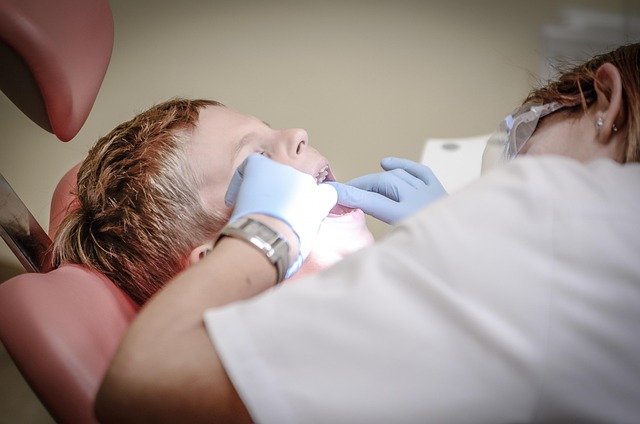Dental Implants on the NHS for Over-60s: A Practical Guide to Eligibility and Access
Individuals over the age of 60 considering dental implants through the NHS can benefit from understanding the eligibility requirements, clinical criteria, and referral process. This guide outlines what to expect during consultations, the potential for waiting lists, and available alternatives in cases where NHS coverage does not apply.

What are the NHS dental implant eligibility criteria for seniors?
The NHS provides dental implants in specific circumstances, and eligibility is not automatically granted based on age. For seniors over 60, the primary factors considered include:
-
Medical necessity: Implants may be offered if conventional dentures or bridges are unsuitable due to medical conditions or jaw bone structure issues.
-
Significant oral health impact: Cases where tooth loss severely affects eating, speaking, or overall quality of life may be prioritized.
-
Cancer-related tooth loss: Patients who have lost teeth due to oral cancer treatment are often eligible for NHS-funded implants.
-
Congenital conditions: Those with conditions like ectodermal dysplasia or hypodontia may qualify for implants on the NHS.
It’s important to note that cosmetic reasons alone are generally not sufficient for NHS eligibility, regardless of age.
How are clinical assessments and medical history reviews conducted?
To determine eligibility for NHS dental implants, patients undergo a comprehensive evaluation process:
-
Initial consultation: A dentist will assess your oral health, discuss your medical history, and evaluate the suitability of implants for your case.
-
X-rays and scans: Detailed imaging helps dentists assess bone density and structure, crucial factors for successful implant placement.
-
Medical history review: Your overall health status, including any chronic conditions or medications, will be carefully considered.
-
Lifestyle factors: Smoking habits and alcohol consumption are evaluated, as these can impact implant success rates.
-
Specialist referral: Complex cases may be referred to oral surgeons or prosthodontists for further assessment.
This thorough process ensures that implants are only recommended when they are the most appropriate and beneficial treatment option.
What is the NHS referral process and expected waiting periods?
Once eligibility is established, the NHS referral process for dental implants typically involves:
-
Referral from general dentist: Your NHS dentist will initiate the referral to a specialist implant centre or hospital dental department.
-
Waiting list placement: Due to limited NHS resources, there is often a waiting period for implant treatments.
-
Pre-treatment assessment: Before the procedure, you’ll have a final assessment to confirm suitability and discuss the treatment plan.
-
Treatment scheduling: Once approved, your implant procedure will be scheduled.
Expected waiting periods can vary significantly depending on your location and the demand for NHS implant services. In some areas, patients may wait several months to over a year from referral to treatment. It’s advisable to discuss potential waiting times with your referring dentist and explore interim solutions if needed.
What private dental financing and insurance options are available?
Given the limited availability of NHS dental implants and potential long waiting periods, many seniors consider private treatment options:
-
Dental insurance: Some private dental insurance plans cover a portion of implant costs. Check policy details carefully, as coverage varies widely.
-
Payment plans: Many private dental practices offer interest-free or low-interest payment plans to spread the cost of treatment.
-
Dental loans: Specialized healthcare finance companies provide loans for dental procedures, including implants.
-
Dental savings plans: These membership-based programs offer discounts on various dental treatments, including implants, at participating dentists.
-
Health savings accounts (HSAs) or flexible spending accounts (FSAs): If available, these can be used to pay for dental implants with pre-tax money.
| Financing Option | Key Features | Potential Benefits |
|---|---|---|
| Dental Insurance | Partial coverage for implants | Reduces out-of-pocket expenses |
| Payment Plans | Spread cost over time | Makes treatment more affordable |
| Dental Loans | Specific financing for dental work | Quick access to funds |
| Dental Savings Plans | Discounts at participating dentists | Immediate savings on treatment |
| HSAs/FSAs | Use pre-tax funds for dental care | Tax advantages |
Prices, rates, or cost estimates mentioned in this article are based on the latest available information but may change over time. Independent research is advised before making financial decisions.
What preparation and recovery guidance is provided for implant surgery?
Proper preparation and adherence to recovery guidelines are crucial for successful dental implant outcomes:
Preparation:
-
Oral hygiene: Maintain excellent oral health in the weeks leading up to surgery.
-
Smoking cessation: If applicable, quit smoking well before the procedure to improve healing prospects.
-
Medication review: Discuss current medications with your dentist, as some may need adjustment.
-
Fasting: Follow pre-operative fasting instructions if sedation or general anesthesia is planned.
Recovery:
-
Pain management: Follow prescribed pain relief regimens and avoid aspirin-based products.
-
Oral care: Use prescribed mouthwashes and follow gentle brushing techniques around the implant site.
-
Diet: Stick to soft foods initially, gradually reintroducing normal foods as advised by your dentist.
-
Rest: Allow adequate rest and avoid strenuous activities for the recommended period.
-
Follow-up appointments: Attend all scheduled check-ups to monitor healing and implant integration.
Adhering to these guidelines significantly contributes to successful implant outcomes and long-term oral health.
Dental implants can be a life-changing solution for many seniors facing tooth loss. While NHS options are available in specific circumstances, understanding the eligibility criteria, assessment process, and potential alternatives is crucial. Whether pursuing NHS or private treatment, thorough research and consultation with dental professionals will help ensure the best possible outcome for your oral health and overall well-being.
This article is for informational purposes only and should not be considered medical advice. Please consult a qualified healthcare professional for personalized guidance and treatment.




